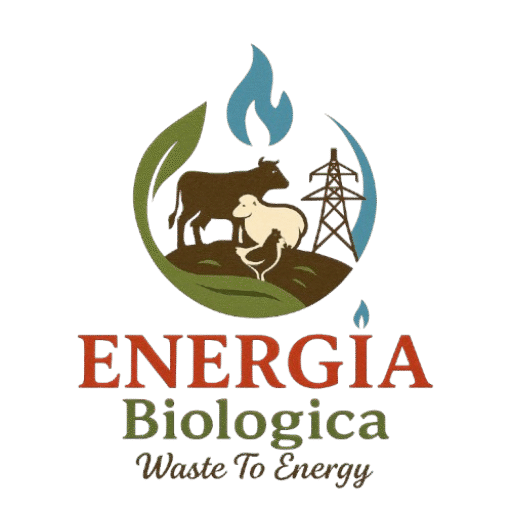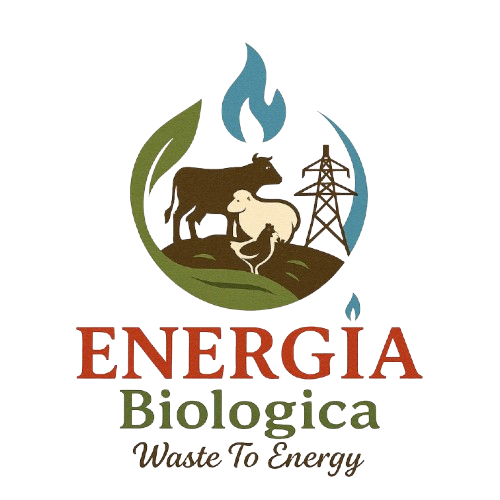Empowering Communities: Social and Economic Benefits of Biogas Projects in Nigeria
Across Nigeria, millions of households, particularly in rural and underserved areas, face the harsh realities of energy poverty. The absence of reliable electricity and the continued reliance on traditional fuels like firewood, charcoal, and kerosene exact a heavy toll – on health, the environment, and economic development. Women and children often bear the brunt, spending countless hours foraging for fuel, exposing themselves to hazardous indoor air pollution, and sacrificing opportunities for education or income generation. Simultaneously, organic waste accumulates untreated in these very communities, posing environmental hazards. But what if this pervasive challenge could be transformed into a source of prosperity and empowerment?
This is the profound promise of biogas projects, offering a holistic solution that goes far beyond mere energy provision. By converting readily available organic waste into clean energy and valuable fertilizer, these initiatives are fundamentally empowering communities across Nigeria, delivering significant social and economic benefits. Energia Biologica Limited, Nigeria’s pioneering biogas industry facilitator, is deeply committed to this transformative vision. We adopt a partnership-driven, integrative approach, bringing together essential finance, technology, construction, and operations partners to realize impactful biogas initiatives, fostering a true waste-to-wealth revolution that centres on community upliftment.
Bridging the Energy Divide: Reliable Power and Clean Cooking
The most immediate and tangible benefit of community-based biogas projects is the provision of reliable energy access. In many parts of rural Nigeria, where grid electricity is non-existent or highly unreliable, biogas offers a decentralized, sustainable alternative.
- Clean Cooking Solutions: For millions, traditional cooking methods using open fires or inefficient cookstoves are a daily reality. These methods consume vast amounts of biomass (contributing to deforestation), are time-consuming, and generate harmful smoke. Biogas provides a clean-burning fuel that can be piped directly into homes, offering a healthier, faster, and more convenient cooking solution. Imagine women in communities across states like Kwara or Niger no longer spending hours searching for firewood, but instead having instant, smokeless fuel at their fingertips. This simple shift frees up invaluable time, particularly for women and girls, allowing them to engage in educational pursuits, skill development, or income-generating activities.
- Decentralized Electricity: Beyond cooking, biogas can be used to generate electricity for lighting homes, powering small businesses, charging phones, and even operating critical community services like health clinics and schools. This clean energy Nigeria solution can transform night into day, extend study hours for students, enable small enterprises to operate longer, and improve the quality of life dramatically. For off-grid communities, biogas represents genuine energy independence Nigeria, offering a stable and predictable power supply often lacking from the national grid.
The economic implications are clear: reduced expenditure on kerosene, firewood, and charging fees, leading to direct savings for households and businesses, and increased productivity.
A Breath of Fresh Air: Health and Environmental Transformation
The silent killer lurking in many Nigerian homes is indoor air pollution (IAP), primarily caused by the combustion of solid fuels for cooking. The health statistics are alarming and underscore the urgency of adopting cleaner energy alternatives like biogas.
- Combating Indoor Air Pollution: According to UNICEF, Nigeria has the highest number of overall air pollution-related pneumonia deaths of children under five in the world, with almost 185 children dying every day from pneumonia due to air pollution, the majority from household air pollution (UNICEF, 2021). The World Health Organization (WHO) has also consistently highlighted that cooking smoke is a leading cause of respiratory illnesses, cardiovascular diseases, lung cancer, and other health issues, particularly affecting women and children who spend the most time indoors.
- Improved Public Health Outcomes: By replacing smoky biomass fuels with clean biogas, communities experience a dramatic reduction in indoor air pollutants. This directly translates to fewer cases of respiratory infections, eye irritations, and other chronic diseases, leading to healthier families and reduced healthcare burdens. A healthier population is a more productive population.
- Environmental Stewardship: Biogas projects contribute significantly to environmental sustainability. They capture methane – a potent greenhouse gas that is 25 times more powerful than carbon dioxide over a 100-year period – that would otherwise be released into the atmosphere from decomposing organic waste. By converting it into energy, biogas mitigates climate change. Furthermore, reducing reliance on firewood helps combat deforestation, soil erosion, and preserves vital ecosystems, promoting sustainable energy solutions for the long term. This holistic waste management Nigeria approach fosters a cleaner, greener environment for future generations.
Catalysing Livelihoods: Job Creation and Economic Empowerment
Beyond immediate energy and health benefits, biogas projects act as powerful catalysts for sustainable economic development at the community level, creating new opportunities and strengthening existing livelihoods.
- Direct and Indirect Job Creation: The establishment and operation of biogas plants create various job opportunities within communities. These include skilled and semi-skilled roles in the construction of digesters, the collection and processing of organic feedstock (such as livestock manure from cattle markets or agricultural residues from farms), and the ongoing maintenance and management of the biogas facility. For instance, in agricultural zones like Kaduna or Taraba, community members can be trained as biogas technicians or feedstock aggregators.
- Empowering Women: By significantly reducing the time spent on laborious and often dangerous tasks like firewood collection, biogas technology empowers women to allocate their time to more productive activities. This could involve engaging in small businesses, participating in community governance, pursuing educational opportunities, or focusing on childcare. Projects like the UN Women’s “Low-Cost Household Biogas Project” in Nigerian states like Kwara, Ebonyi, and Sokoto are clear examples of how biogas directly contributes to women’s economic empowerment and frees them from time poverty.
- Agricultural Productivity and Income: The digestate produced by biogas plants is a superior organic fertilizer. Farmers utilizing this byproduct experience improved soil fertility, leading to higher crop yields and reduced dependence on expensive imported chemical fertilizers. This directly translates to increased income for farmers, strengthening agricultural value chains within the community. In a truly circular economy, waste from the farm is returned as fertilizer, boosting productivity and creating a more resilient farming system.
- Entrepreneurial Opportunities: The availability of clean, affordable energy can spur the growth of micro-enterprises within the community. Small-scale food processing units, welding shops, cold storage facilities for perishable goods, and even charging stations for electronics can thrive with a stable power supply, creating further economic vibrancy.
The Energia Biologica Approach: Community-centred Development
At Energia Biologica, we understand that for biogas projects to truly empower communities, deep engagement and social acceptance are paramount. Our approach is not just about installing technology; it’s about building lasting partnerships and fostering local ownership.
We work closely with local leaders, community groups, and traditional institutions from the initial assessment phase, ensuring that projects are tailored to specific community needs and preferences. This includes:
- Needs Assessment and Co-Design: Understanding local energy demands, waste streams, and socio-cultural contexts to design appropriate biogas solutions.
- Capacity Building: Providing training and skill development opportunities for community members in the operation, maintenance, and basic repair of biogas systems, fostering self-reliance and creating local expertise.
- Fair Benefit Sharing: Ensuring that the benefits derived from biogas projects – whether it’s clean energy, organic fertilizer, or job opportunities – are equitably distributed among community members.
- Addressing Local Concerns: Openly communicating about project benefits and potential challenges and working collaboratively to address any concerns.
Our integrated model facilitates the necessary funding, ensures access to robust biogas technology, and manages efficient project execution, all while prioritizing the social fabric and long-term well-being of the communities we serve. This collaborative spirit defines our commitment to catalysing sustainable biogas development in Nigeria, positioning communities as central beneficiaries of this waste-to-wealth transformation.
A Brighter Future, Built from Within
The challenges facing Nigerian communities are significant, but so is the potential within their organic waste. Biogas projects offer a multi-faceted solution that addresses critical needs for energy, health, environment, and economy. They represent a pathway to genuine empowerment, allowing communities to take charge of their energy future, improve public health, create local jobs, and cultivate more productive lands.
By investing in sustainable biogas solutions for Nigerian communities, we are investing in a future where every household has access to clean energy, every farmer benefits from enhanced soil fertility, and every community thrives with new economic opportunities.
Learn how Energia Biologica’s community-centred approach can bring clean energy and economic opportunities to your region.
Join us in building resilient, empowered communities across Nigeria, powered by the promise of biogas.

